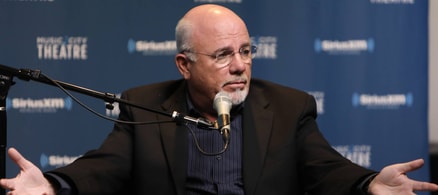Communicate — and deal with your baggage
In her research, Scorgie found that couples who talk about money are much more likely to stay together. But very few actually have these conversations. A survey run by FP Canada in 2020 revealed that nearly one in four Canadians reported talking about money made them uncomfortable.
That doesn’t surprise Andrew Sofin, a psychotherapist specializing in couples and families in Montreal. The pandemic hasn’t helped, either, with people often stuck at home for prolonged periods.
“Especially if they're living in a smaller one bedroom or two bedroom … it’s impacting people's mental health. So obviously, I can imagine a major impact on your relationship as well,” says Sofin.
The three biggest issues he sees over and over in his practice — communication, money and sex — have only been amplified by the side effects of COVID.
Everyone enters a relationship with their own baggage. But many people don’t realize that how they spend (or save) money reflects both their past experiences and what they value now — and how that may impact their partner.
“The reality is, you learn about your concepts around money and finance from your family of origin,” he says. “Whether you grew up in extreme wealth or extreme poverty, it's going to shape you; it's going to make you who you are.”
Scorgie adds that “everything that you care about [reflects] in your bank account in one way or another because you spend money on things you care about.”
Maximize Your Tax Refund with TurboTax Canada!
Simplify tax season with this user-friendly software. Get step-by-step guidance, maximize deductions, and file with confidence. Trusted by millions, TurboTax Canada ensures accuracy and peace of mind. Start your taxes today and get the refund you deserve
Get the tax refund you deserveWhen to start talking about money
Conflict can happen when the things individuals value don’t align with their partner’s priorities.
Sofin says these issues typically start to pop up when couples move in together, get engaged or get married and merge their finances. But the problems really come to the forefront when couples start having children, which can bring additional financial stress to a relationship. Most of his clients are parents of kids under five.
To avoid landing on Sofin’s couch one day, it’s important to begin talking about finances early in a relationship. Obviously you don’t want to show up on a first date with a spreadsheet to start building your financial plan together, but Scorgie says starting to test the waters three or four dates in is reasonable.
It’s a matter of determining whether you’re financially compatible. And how you have those conversations matters.
“The best way is always going to look like, ‘This is how I grew up … this is how we dealt with expenses or credit cards; that's what’s normal to me,’’’ says Sofin. “Because then it's not a personal attack. You have to be open to talking about it.”
Can spenders and savers happily coexist?
As with other relationship issues, having different perspectives about money doesn’t have to be a dealbreaker. In fact, many people will benefit from having someone in their life who challenges their way of thinking and encourages them to try different approaches.
“I always sort of phrase it as, ‘Well, you can be right and live alone,’” says Sofin. “Or you can park your ego at the door, be open to compromise and talk things through and maybe shift your viewpoints and have a really good relationship.”
These money conflicts are often rooted in core experiences and even trauma at times. Many people will find they have to work through some things personally before being able to resolve financial issues with their partner.
“It’s a solvable issue, but couples don’t know where to start,” says Scorgie. Ultimately, she says, both people in a relationship may have to do some work on themselves first.
Sofin and Scorgie agree both parties have to be open to meeting in the middle. A spender and a saver can happily coexist if they communicate respectfully, plan together and stick to their shared priorities.
If that’s not possible, Scorgie has some tough advice: This may not be the right relationship for you.
“It is a very good idea to walk away from something that you are unsure or unclear about because of financial reasons,” says Scorgie. “Way too many people don't bother. But that is a legitimate, okay reason.”
Sponsored
Trade Smarter, Today
With CIBC Investor's Edge, kick-start your portfolio with 100 free trades and up to $4,500 cash back.






